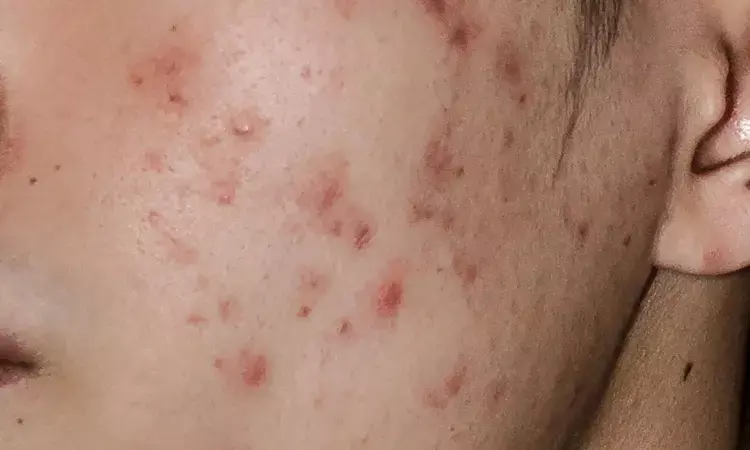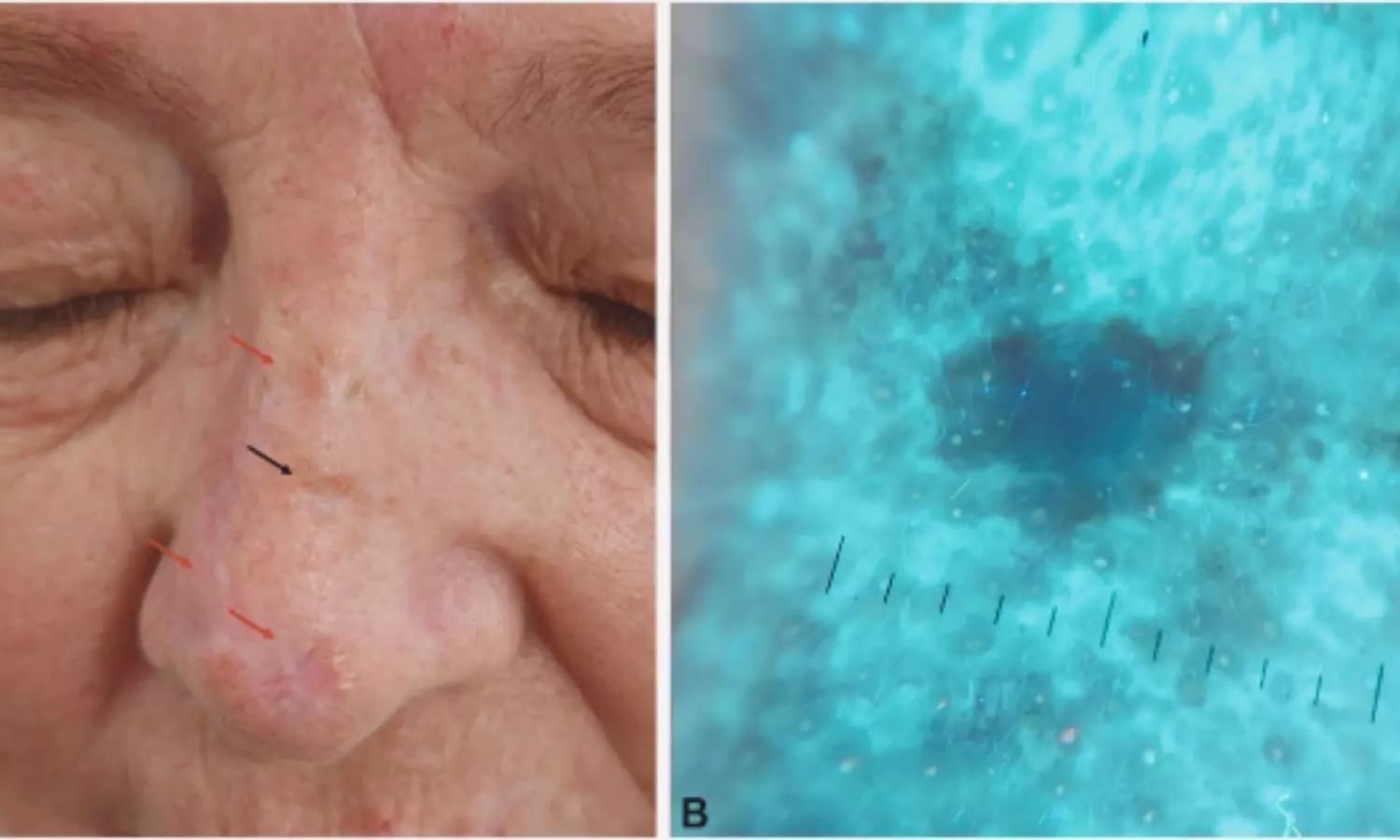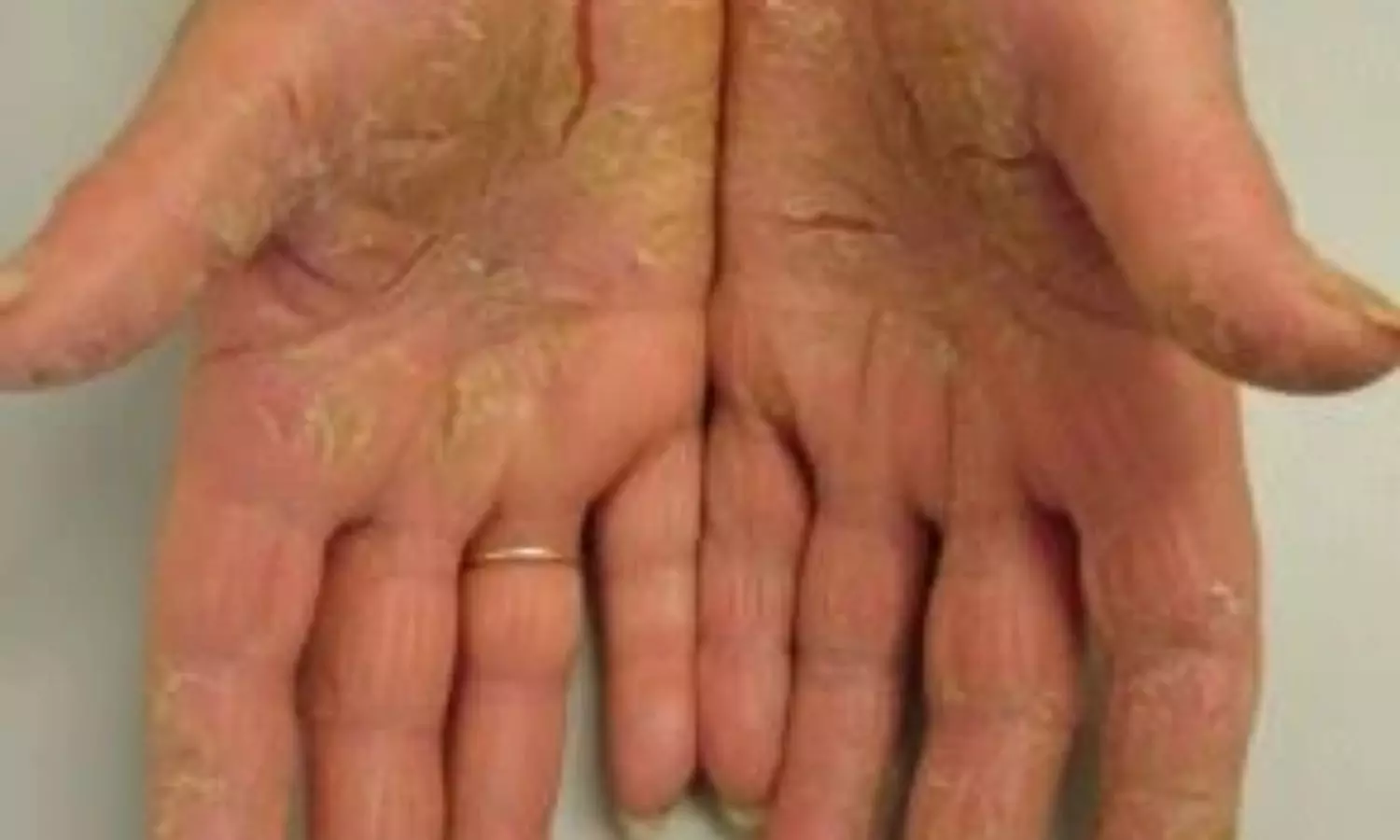- Home
- Medical news & Guidelines
- Anesthesiology
- Cardiology and CTVS
- Critical Care
- Dentistry
- Dermatology
- Diabetes and Endocrinology
- ENT
- Gastroenterology
- Medicine
- Nephrology
- Neurology
- Obstretics-Gynaecology
- Oncology
- Ophthalmology
- Orthopaedics
- Pediatrics-Neonatology
- Psychiatry
- Pulmonology
- Radiology
- Surgery
- Urology
- Laboratory Medicine
- Diet
- Nursing
- Paramedical
- Physiotherapy
- Health news
- Fact Check
- Bone Health Fact Check
- Brain Health Fact Check
- Cancer Related Fact Check
- Child Care Fact Check
- Dental and oral health fact check
- Diabetes and metabolic health fact check
- Diet and Nutrition Fact Check
- Eye and ENT Care Fact Check
- Fitness fact check
- Gut health fact check
- Heart health fact check
- Kidney health fact check
- Medical education fact check
- Men's health fact check
- Respiratory fact check
- Skin and hair care fact check
- Vaccine and Immunization fact check
- Women's health fact check
- AYUSH
- State News
- Andaman and Nicobar Islands
- Andhra Pradesh
- Arunachal Pradesh
- Assam
- Bihar
- Chandigarh
- Chattisgarh
- Dadra and Nagar Haveli
- Daman and Diu
- Delhi
- Goa
- Gujarat
- Haryana
- Himachal Pradesh
- Jammu & Kashmir
- Jharkhand
- Karnataka
- Kerala
- Ladakh
- Lakshadweep
- Madhya Pradesh
- Maharashtra
- Manipur
- Meghalaya
- Mizoram
- Nagaland
- Odisha
- Puducherry
- Punjab
- Rajasthan
- Sikkim
- Tamil Nadu
- Telangana
- Tripura
- Uttar Pradesh
- Uttrakhand
- West Bengal
- Medical Education
- Industry
Clarifying Connection Between Whey Protein and Acne: Findings from Six-Month Trial

The longstanding debate on whether whey protein consumption exacerbates acne vulgaris (AV) has taken a significant step forward with the results of a recent six-month trial. The trial's findings suggest that, over a 6-month period, men with acne who incorporated whey protein supplementation did not show a significant difference in the changes in total acne lesions and severity of facial and truncal acne compared to the non-whey protein group. This study, designed as a noninferiority trial, aimed to investigate the potential association between whey protein intake and acne severity in men with mild to moderate facial and/or truncal acne, addressing a topic that has been surrounded by speculation and conflicting opinions.
The study results were published in The Journal of Dermatology.
The primary objective of the trial was to provide clarity on the connection between whey protein and acne severity. Men with mild to moderate facial and/or truncal acne were randomly assigned to either the intervention group, consuming 30g of whey protein daily along with a non-whey protein nutritional supplement, or the control group, which took a non-whey protein nutritional supplement of 46g.
Key Findings:
- A total of 49 participants, with a mean age of 19.7 years in the whey protein group and 20.3 years in the non-whey protein group, were included in the study.
- The trial's findings revealed no statistically significant differences in facial and truncal total acne lesions between the whey protein and non-whey protein groups.
- The mean differences were -5.99 (p = 0.09) and -2.18 (p = 0.65), respectively.
- Furthermore, only one participant (4.3%) in the non-whey protein group reported an increase in acne severity on the Investigator Global Assessment scale.
The results of the trial suggest that over the six-month period, men with acne who incorporated whey protein supplementation did not experience a significant difference in acne lesions or severity compared to those in the non-whey protein group. This noninferiority difference provides valuable insights into the ongoing debate surrounding the potential impact of whey protein on acne. Acne, a common dermatological concern, often leads to speculation about its relationship with dietary choices.
The study's findings contribute to a growing body of evidence that aims to provide a more nuanced understanding of the factors influencing acne severity. As discussions on the relationship between diet and dermatological conditions persist, evidence-based studies play a crucial role in dispelling myths and offering practical insights. The results of this trial underscore the importance of informed decision-making regarding nutritional choices, providing reassurance to those who include whey protein in their dietary regimen.
Further reading: Whey protein and male acne: A double-blind, randomized controlled trial. https://doi.org/10.1111/1346-8138.17109.
BDS, MDS
Dr.Niharika Harsha B (BDS,MDS) completed her BDS from Govt Dental College, Hyderabad and MDS from Dr.NTR University of health sciences(Now Kaloji Rao University). She has 4 years of private dental practice and worked for 2 years as Consultant Oral Radiologist at a Dental Imaging Centre in Hyderabad. She worked as Research Assistant and scientific writer in the development of Oral Anti cancer screening device with her seniors. She has a deep intriguing wish in writing highly engaging, captivating and informative medical content for a wider audience. She can be contacted at editorial@medicaldialogues.in.
Dr Kamal Kant Kohli-MBBS, DTCD- a chest specialist with more than 30 years of practice and a flair for writing clinical articles, Dr Kamal Kant Kohli joined Medical Dialogues as a Chief Editor of Medical News. Besides writing articles, as an editor, he proofreads and verifies all the medical content published on Medical Dialogues including those coming from journals, studies,medical conferences,guidelines etc. Email: drkohli@medicaldialogues.in. Contact no. 011-43720751




